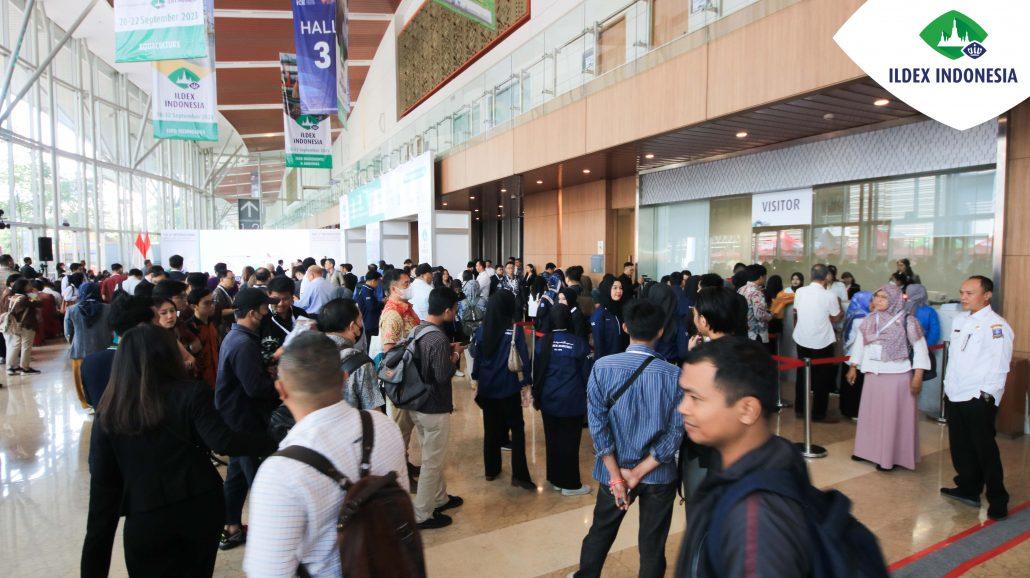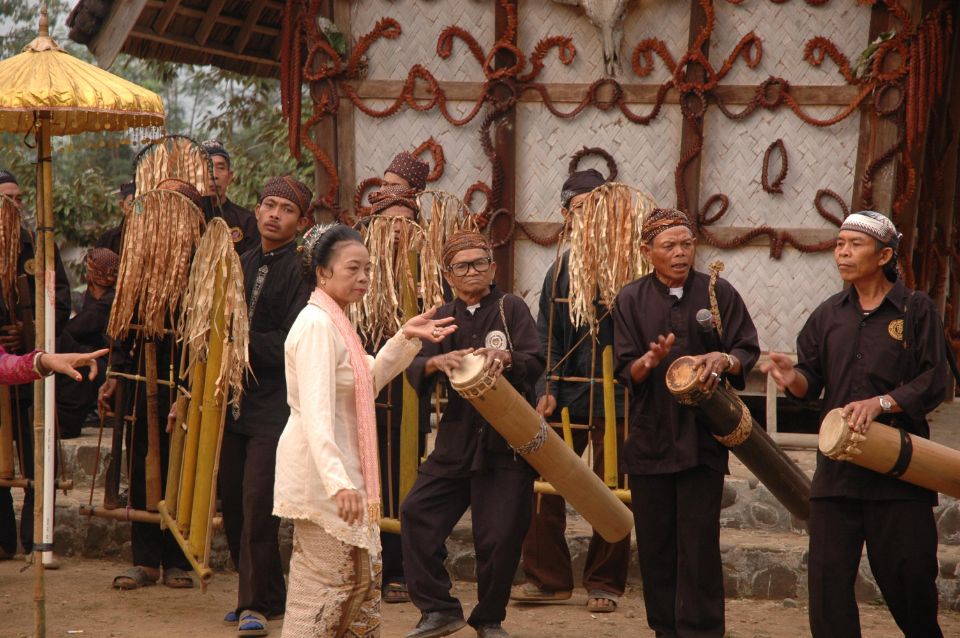The villages in Mungkid District, Magelang offer exciting and refreshing experiences for visitors, especially those who enjoy water-based activities. Here are some interesting destinations you can visit:
Whitewater Rafting on the Elo River
The sound of splashing water amidst the rushing currents of the Elo River fuels the excitement of rafting participants. Shouts echo as each rapid is navigated, showcasing the adrenaline rush. It’s a thrilling experience, paddling through the fast-moving water, with moments of suspense as unexpected rapids approach. The excitement peaks when there are more participants, and the boats travel in groups.
For those interested in joining the rafting adventure on the Elo River, there are several operators you can sign up with. The cost starts at IDR 750,000 per boat, which includes insurance, snacks, meals, drinks, and local transportation. Each boat can carry four participants, accompanied by a guide. There is a rest area midway where you can enjoy food and fresh coconut water.
The longest rafting trip lasts for two hours, covering a distance of 8 to 12 kilometers. One of the longest routes ends near the Mendut Temple area.
Before entering the river, all participants must wear safety equipment such as helmets and life jackets. A safety briefing is mandatory to ensure a safe and comfortable rafting experience. Participants must follow the guide’s instructions, learn how to hold the paddles, and handle situations while on the water. Although the Elo River has rapids with an easy grade, the safety briefing should not be overlooked.
If you're looking to enjoy rafting with your family, Elo River is an ideal choice, as children as young as five years old, up to older adults, can join the adventure. The key requirement is to have good health and not have any risk of heart disease, epilepsy, or asthma.
In the Elo River area, there are three villages managing the water tourism, namely Blondo Village, Progowati Village, and Senden Village, each with multiple rafting operators. The starting point for the rafting trip is located in Blondo Village, which is home to five operators: Toto Magelang Explore, Muslih Jogja Rafting, Tohir Bagoes Rafting, David Jeram Elo Adventure, and Sofyan Vertical Rafting. These operators work together to develop rafting tourism in Blondo Village.
Progowati Village, on the other hand, has around 10 operators, three of which are Sanyoto Kompas Adventure, Bowo Delta Elo Rafting, and Agus from Elo Rivers.
The story of Sanyoto is an inspiring one. After attending rafting training in 1998 and obtaining certification as a guide in Bali and West Java, Sanyoto became a rafting guide at Citra Elo, the first rafting operator in Mungkid. After five years as a guide, he felt the urge to develop himself.
“If I keep being a guide without developing, I won’t go anywhere. At first, I had four boats, two of which I owed, and the other two I bought,” he shared.
Starting with two boats he bought from savings and two others he borrowed, Sanyoto now owns one of the largest rafting operators in Mungkid. Kompas Adventure now has 34 boats, three permanent staff, and many freelance guides.
If there is a large group booking with one operator, guides are often borrowed from other operators. If still in need, many freelance guides are available, often from nature-loving students with experience. The total number of guides is estimated to reach around 500.
In contrast, Senden Village offers a different water experience: water tubing or “water adventure,” which uses large tubes rather than rubber rafts. The tubing is not done on the Elo River itself but on its tributaries. This activity is exciting as participants are directly in contact with the water, feeling its refreshing coolness.
Mangut Beong - Magelang’s Specialty Cuisine
In Mungkid, not only is water-based tourism abundant, but the local cuisine also centers around water. If you visit this area, you must try the local specialty, Ikan Beong, a type of fish often found in the Progo River.
The fried Beong fish is cooked with a blend of spices like shallots, coriander, pepper, candlenut, turmeric, galangal, red chili, and other seasonings. It is then simmered in coconut milk, creating a rich and spicy flavor for the Mangut Ikan Beong dish. This dish is similar to gulai but with a thinner, spicier broth. The fish can be served whole, in parts, or even just the large head.
One of the well-known eateries serving this dish is Warung Omah Kayoman in Progowati Village, owned by Ipuk. Her humble yet spacious restaurant is always bustling with customers, both locals and tourists. Having been established since 2005, the warung has become a culinary icon in Progowati Village.
The Beong fish, initially a wild catch from the Progo River, resembles catfish, with heads large enough to fill a plate. The Mangut Beong is savory, spicy, and irresistible, best enjoyed with hot white rice and a refreshing drink.
Prices for Mangut Beong range from IDR 25,000 to IDR 60,000, depending on the size of the fish. On average, Omah Kayoman can sell up to 100 servings of Mangut Beong per day. In addition to this signature dish, guests can also enjoy other accompanying local foods.
Ngrajek Village: From Minapolitan to Minawisata Village
For those who love small fish, Lepen Shumong in Ngrajek Village is a must-visit. The formerly polluted drainage canals have been transformed by the local youth into an exciting destination filled with tilapia and koi.
Ngrajek is a “minapolitan” village, where most of the villagers make a living from fish farming. The Lepen Shumong destination was born during the pandemic when the locals worked together to clean the canal, fill it with fish, and beautify the area with mural paintings. Despite its humble beginnings, Lepen Shumong now produces fish for sale and serves as a small fish farming tourist spot. It harvests approximately 150 kilograms of fish every eight months.
Lepen Shumong also features a selfie spot above the fish ponds and hosts a local culinary market every Sunday morning. Currently, entry to Lepen Shumong is free, though visitors can buy fish feed for IDR 2,000 per cup to feed the fish.
The youth of the village hope that Lepen Shumong will become a daily-active minawisata destination visited by tourists from outside the area and serve as an inspiration for other villages.
In the same village, visitors can also visit Sabo Dam Pabelan, a newly-built dam along the Pabelan River. This dam, measuring 100 meters in length, is designed to trap sediment and control water flow. It connects Ngrajek Village to Menayu Village and features a sturdy structure with a beautiful surrounding garden. The dam will soon be developed into a tourist spot with culinary stalls and fishing opportunities.
Let’s explore the villages of Mungkid! Be ready to experience the freshness of nature, thrilling activities, and tasty local dishes sourced from the rivers

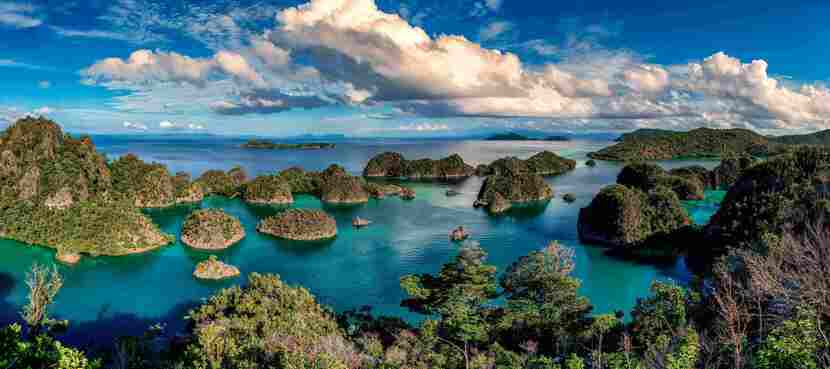


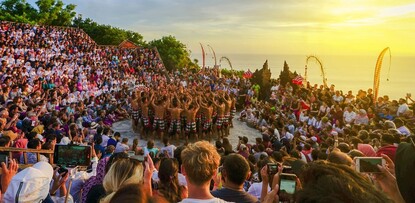
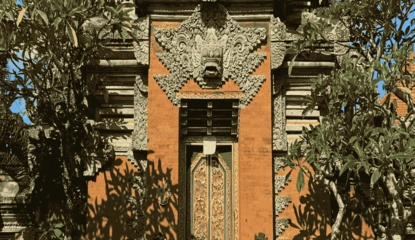

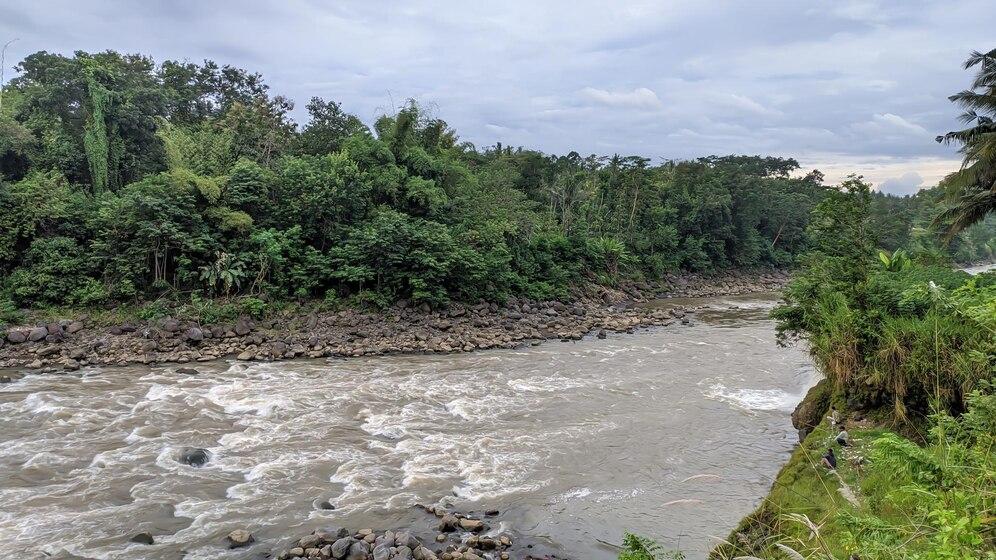

.jpeg)
